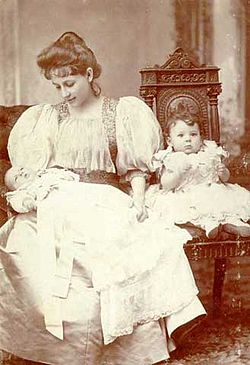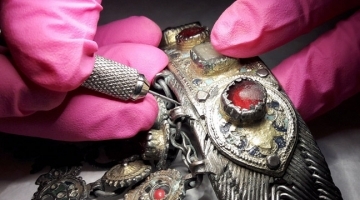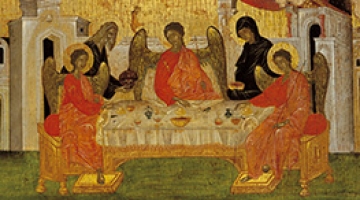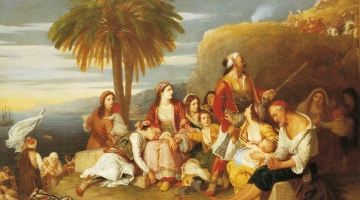- EN English
- Login
-

She spent her childhood and teenage years in Alexandria, frequently visiting Greece and other countries. Although raised in affluent urban surroundings and offered every opportunity to cultivate her intellect, she was subjected to a very strict upbringing at the hands of her mother. This led her to develop a particularly fragile personality, and on more than one occasion she contemplated death as the only option open to her.
Her marriage to the businessman Stephanos Delta in 1895 represented both a departure from the Benaki family environment, and the start of her journey to intellectual and literary maturity. Penelope and Stephanos Delta had three daughters, Sophia, Virginia and Alexandra, who were raised by their mother in an exemplary fashion.
Penelope Delta's innate literary talent had been evident since childhood. Her contribution to literature decisively influenced the evolution of the children's book in a period when it was otherwise neglected. Inspired principally by Greek historical events, her books were read by generations of children, and continue to be relevant to the present day. "The Nameless Story", "In the days of the Bulgarslayer", "The Secrets of the Swamp", "The Mangas", and the most beloved of all, "Crazy Antonis", a story about her brother Antonis Benakis, remain indelibly etched in the Greek collective memory. Penelope Delta was elected to several learned associations and societies, and contributed in countless ways to the advancement of literature and culture.
Her contribution to the collection of oral testimonies about contemporary Greek history is generally acknowledged to be of great importance. Starting out by recording the memoirs of veterans of the Macedonian struggle--all of which represent valuable sources of historical information today--she proceeded to gather oral narratives about the most important political and military events of her time. Her family's prominent role in society and her own sensitivity about national issues meant that she was personally involved in the some of the most difficult periods in Greek history. For instance, in 1918 she took part in two missions to Eastern Macedonia aimed at assisting hostages returning from captivity in Bulgaria. She revealed the same patriotic tendencies in the aftermath of the catastrophe in Asia Minor in 1922 and in the Greco-Italian War of 1940.
The German invasion of Greece affected her deeply and prompted her to take her own life in April 1941, on the very day the Nazi armies entered Athens.




